If you do Google Ads, you can barely go a minute these days without seeing auto-apply recommendations they want you to opt in to.
And just 4 days into 2023, they announced the Remove Redundant Keywords recommendation that got a lot of flak from advertisers for changing the scope of an existing recommendation.
Here’s a TL;DR:
For anyone who opted in, Google would combat redundancy by removing keywords with the same match type that show for the same queries in an ad group. And in January 2023, that scope changed to include all match types.
Now the question is, can you blindly trust automatically applied Google Ads recommendations?
Well, turns out you can’t.
Here’s what Google’s automatically applied recommendations did to our account.
We looked at our Google Ads account and found that our brand keyword, ‘Optmyzr’ all of a sudden wasn’t driving any more conversions.
Luckily, we were using our own tool in Optmyzr called the PPC investigator which flagged this error for us. So we knew something was up.
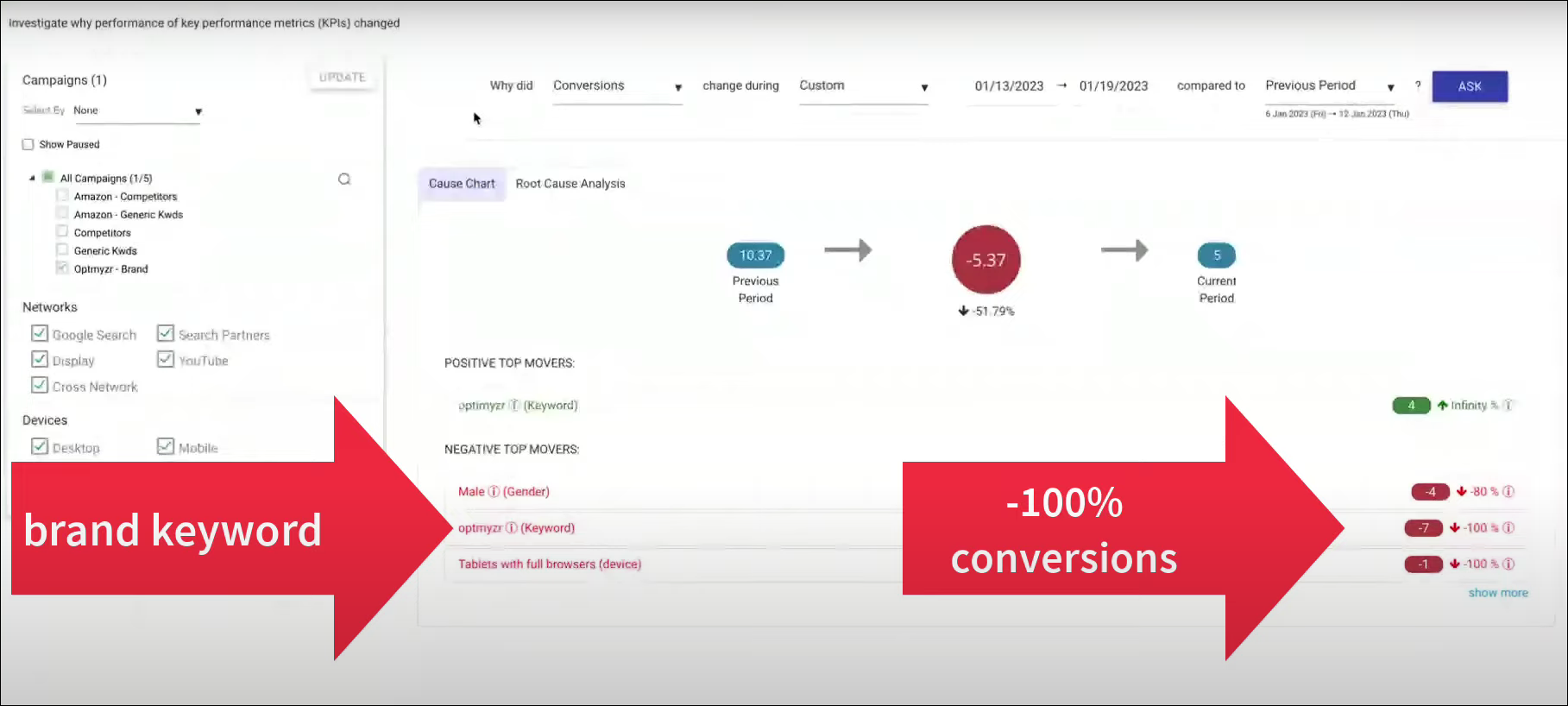
We jumped into our Google Ads account and went to the automatically applied recommendation history to investigate, and here’s what we found.
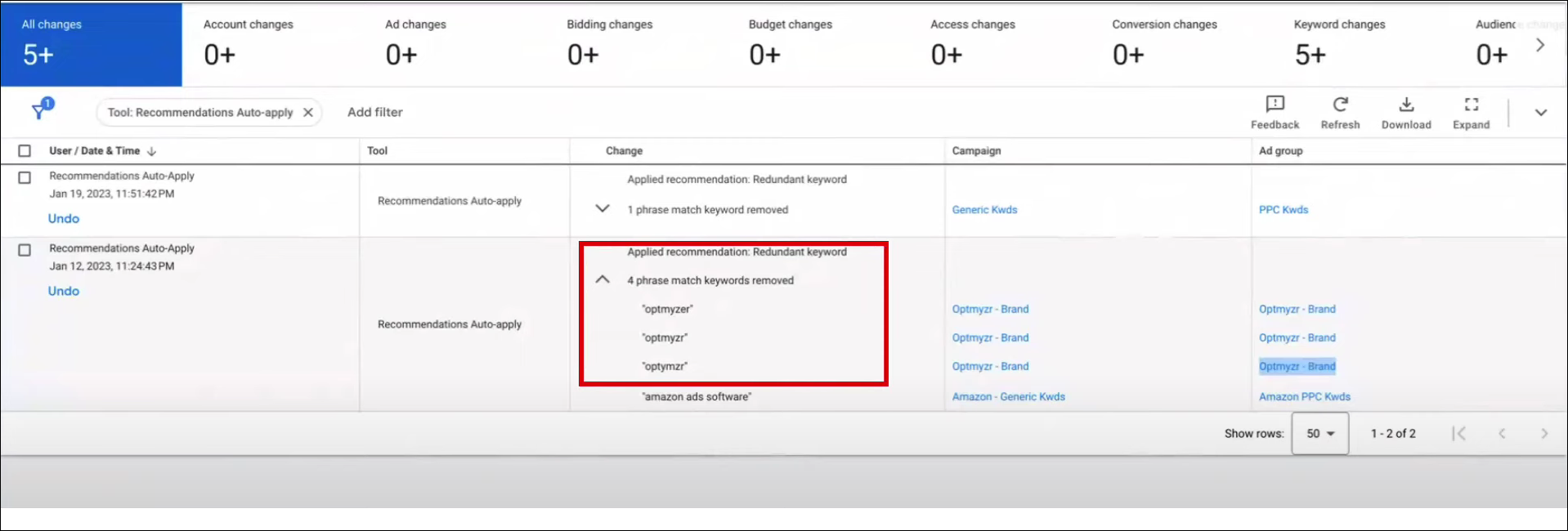
Google removed our brand keyword, ‘Optmyzr’ on January 12. Now, did they have a good reason to do this? We don’t know.
Google may have determined that it was a redundant keyword that was already getting traffic from another variation. But this is our brand name and the correct spelling of it.
Here’s how this specific keyword performed for us.
As you can see the keyword, ‘Optmyzr’, was driving 7 conversions before it was removed. And after it was removed by Google, it had no more conversions.
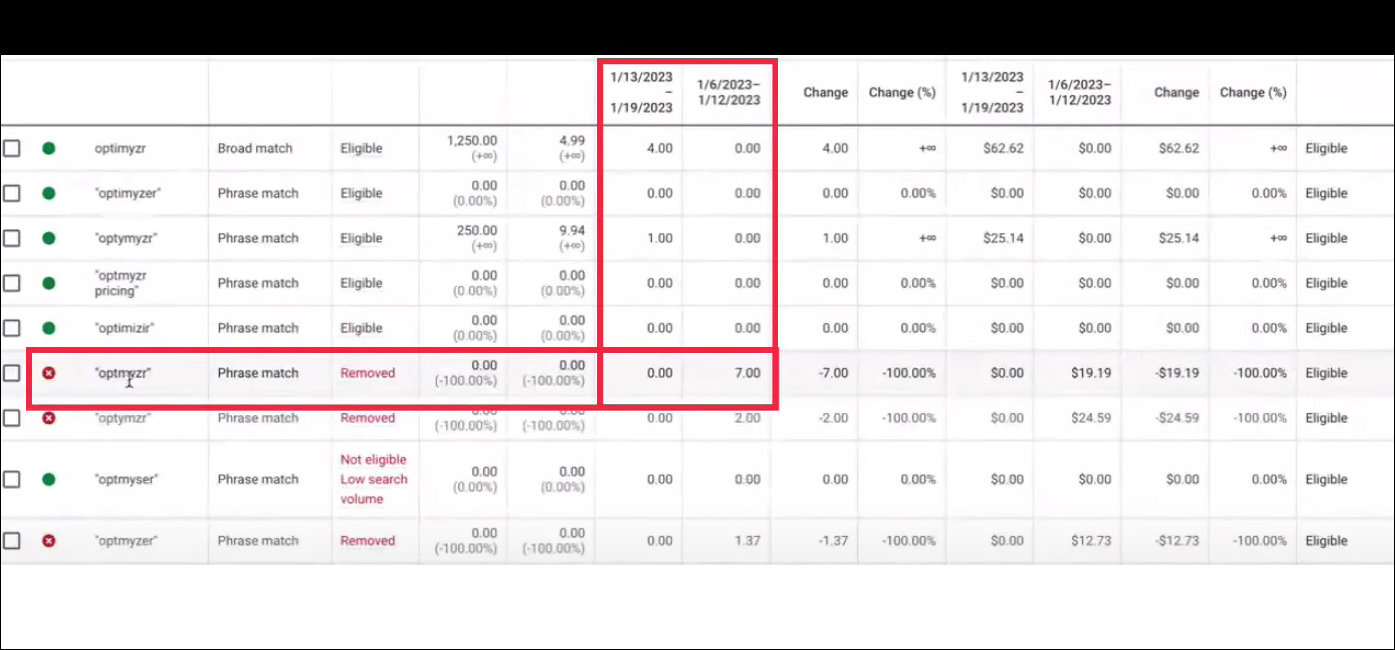
Maybe Google did this because they figured we’d get more overall conversions in the ad group because we were covered on that keyword anyway.
But if you look at those stats, you’ll see that after the change we had 5 conversions whereas we had more than 10 before Google made that change.
We thought, maybe Google actually sent more traffic to other ad groups in the campaign. So we looked at that too, and here’s the campaign.
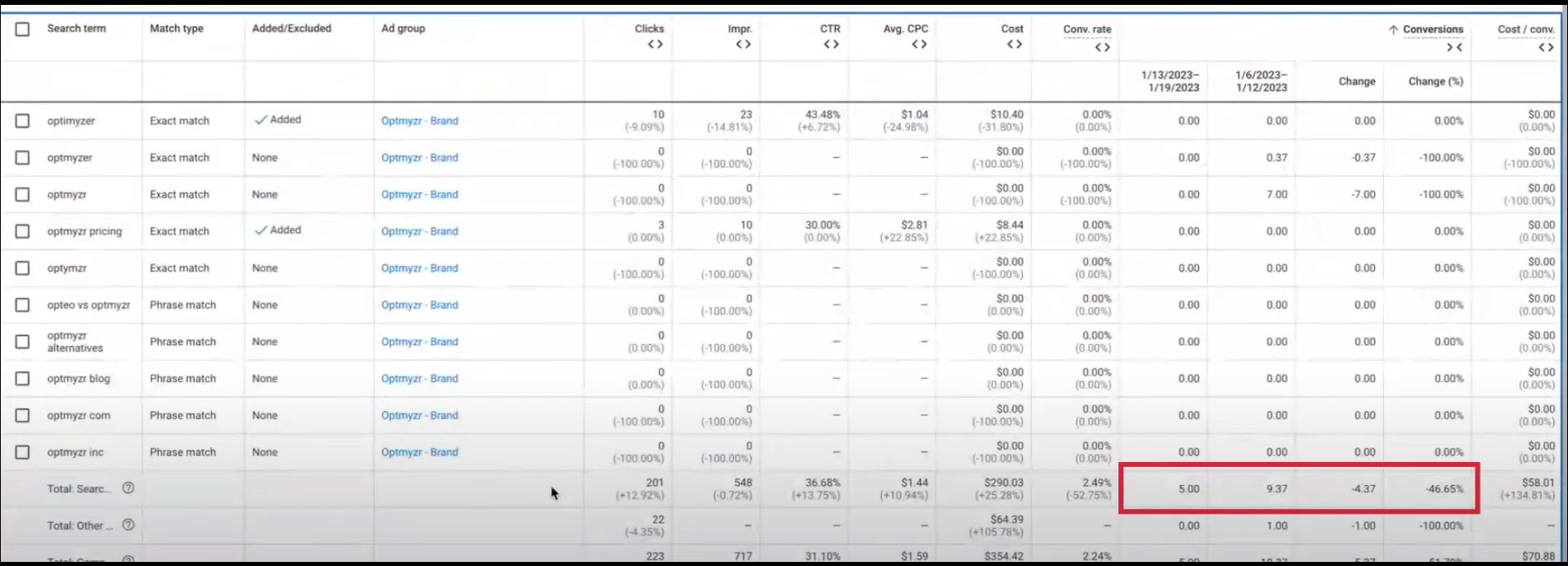
The campaign is now almost entirely reliant on that one brand keyword ad group. Before Google made the change, the campaign was driving 10 conversions. After Google removed our brand name, it was only getting half as many conversions as before.
Okay, well maybe it was giving us cheaper conversions. That could be a good thing. I mean, I kind of liked the conversions, but sometimes cheaper is better.
So we looked at the CPC column and found that after Google’s automatically applied recommendations the CPC went up by more than 130 percent.
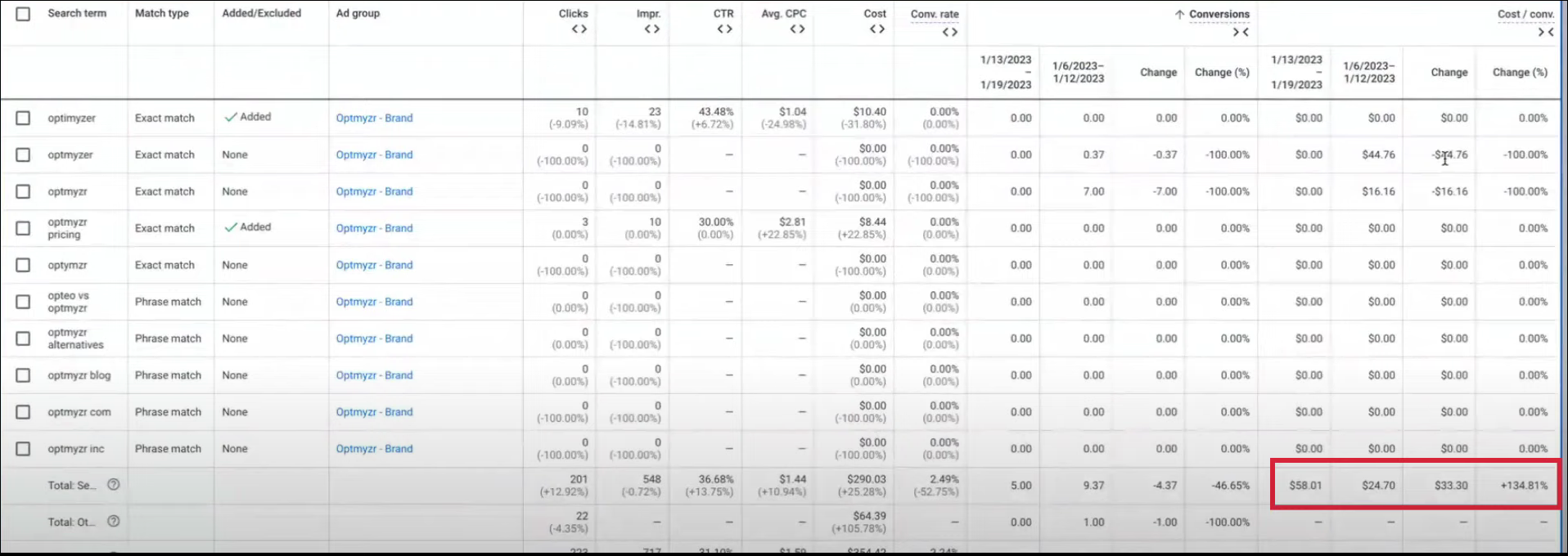
In short, Google identified our brand term “Optmyzr” as a redundant keyword, which made no sense because it was — and still is — one of our best-converting keywords.
This is exactly the reason you need automation layering or PPC insurance to protect your accounts. And that’s what a tool like Optmyzr or a great script will do for you.
How Optmyzr can protect your account from Google’s mistakes?
If you’re worried that Google’s redundant keyword removal is affecting your account in a negative way, Optmyzr’s Rule Engine can help.
Watch this video below to learn how it works.
Remember to monitor Google’s auto-applied recommendations closely
Taking back control with even the simplest of changes, like the one above that takes just a few minutes goes a long way in protecting your PPC accounts.
We caught it in time with our PPC Investigator and Rule Engine tools in Optmyzr before it could cause too much damage.
Make sure Google is not messing up your results with some of their automatically applied recommendations.
If you like what you’ve seen, go ahead and try the strategy shown above in your Optmyzr account. But if you don’t have one yet, consider starting a 14-day free trial.
You can use all of our tools with no limitations to manage your PPC more efficiently.










